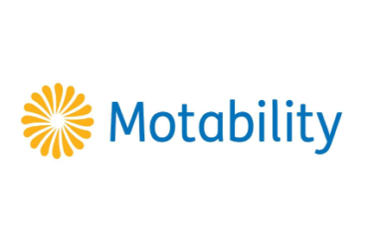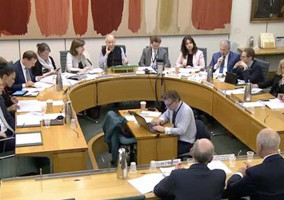The chief executive of Motability charity's connected company has resigned after his organisation's employee bonuses and reserves policies were heavily criticised by the National Audit Office (NAO).
Motability Operations announced that chief executive Mike Betts will stand down "no later than May 2020" after a report by the NAO expressed concerns over a number of the company's procedures including "generous" pay and bonuses paid to Betts.
Concerns were raised over the relationship between the charity and its connected company earlier this year, prompting work and pensions secretary Esther McVey to ask the NAO to open an investigation.
Motability Operations runs a scheme on behalf of the charity that enables disabled people to exchange mobility allowances for the lease of a new car, wheelchair or scooter.
In its report, published today, the NAO calls on the charity to commission external benchmarking to review the connected company’s reserves and evaluate the performance framework of the scheme.
The report criticises the £2.6bn Motability Operations held in reserves at 31 March 2018 as “significantly higher” than similar companies, and suggests some of this should be redistributed to the connected charity.
It says: “Reducing its target reserves level would increase the level of funds available to distribute, given that it is likely that Motability Operations will continue to generate significant surpluses unless an economic shock occurs.”
The scheme has made more profit than intended every year since 2008, totalling £1.05bn of unplanned profit overall.
The report says customers have been charged £390m more than was required to cover lease costs due to the company’s forecasts on the future value of used cars being out of line with the wider market average.
‘Generous pay’
The NAO report says the company’s pay for executive directors has been “generous” and linked to performance targets “that have easily been exceeded”.
It says: “In 2008, a long-term incentive plan (LTIP) was implemented which enabled five executive directors to receive £15.3m over seven years, on the basis of achieving performance targets set below levels that were already being achieved on their introduction.”
It also reveals that Betts has benefited from an additional incentive scheme, which ran between 2010 and 2015 and was designed to ensure his retention in post.
The full value of the scheme, which has not previously been disclosed, was £1.9m in September 2018, and is likely to be worth around £2.2m by 2022.
Meanwhile, Betts’ annual remuneration is likely to reduce from £1.7m to around £1.4m in 2019/20.
Tax concessions
The report also found that the Motability scheme provides an excellent service to customers, with 99 per cent customer satisfaction recorded in 2017/18.
However, the report says the scheme “has long operated in a protected environment, supported by government, which has made maintaining high performance less challenging”.
The report estimates that the scheme benefits from £888m-worth of tax concessions annually, which allow it to offer 44 per cent lower lease prices to customers than its competitors.
It also says that the scheme has fallen short in achieving one of its core objectives: to improve reach and awareness.
Just 614,000, 36 per cent, of the 1.7 million people eligible to use the scheme currently do so and the report says there has been “limited effort” to understand why many others do not use it.
Recommendations
The NAO recommends that the charity reviews the performance framework for the scheme including those related to the connected company’s directors’ pay.
It says the charity should commission external benchmarking on the level of reserves held by the connected company.
The report calls for the charity to develop and publish a long-term strategy that sets out how it plans to spend the “significant income” it receives from the connected company.
It also calls for it to publish an update in 2020 on changes it had made as a result of a governance review that took place last year.
Meanwhile, the report calls on the government to review the support it provides for the scheme “in light of its overarching objectives for mobility allowances”.
It also says the government should work with the charity and its connected company to enhance promotion of the scheme.
As for the connected company, the report recommends it publishes more details about the bonus schemes it has set up for executive directors.
It also calls for it to review its approach to profit forecasting so it can better plan how to spend future surpluses it makes.
Charity response
The charity said it would immediately commission a review of the reserves held by Motability Operations, as suggested by the NAO, "taking into account our third principle: sustainability".
It said it would also review the performance framework for the scheme on which bonuses for the connected company's executive directors are awarded.
Lord Sterling, chair and co-founder of Motability, said: "We have accepted all of the NAO’s recommendations but have told them there are areas still open to further debate.
"One, in particular, is the suggestion that customers are being charged ‘more than was required to cover lease costs’.
"This runs quite contrary to the fact that scheme customers pay 45 per cent less than the market rate for their vehicles, in addition to the support, insurance and vehicle enhancements that we offer.
"As such, every penny, surplus to sustainability and to this excellent price and service, goes to help enhance the lives of our disabled customers and their families."
|
Related articles












